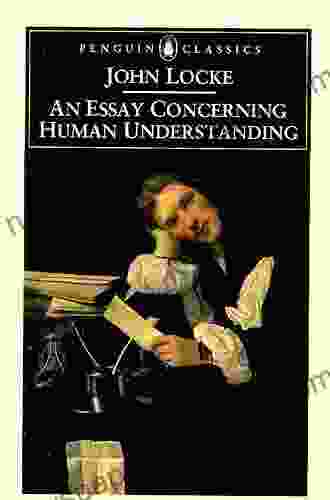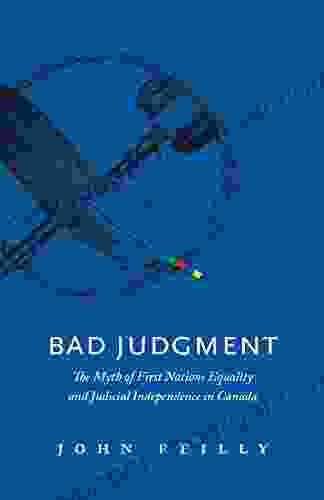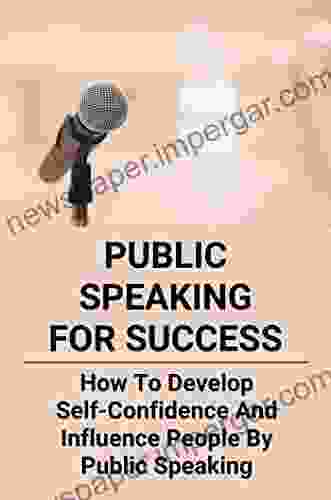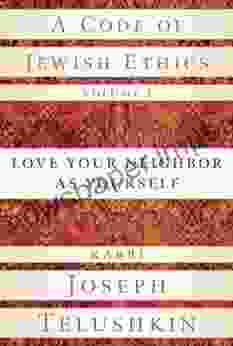Unveiling the Enlightenment's Magnum Opus: An Essay Concerning Human Understanding

Dive into the Labyrinth of Knowledge with Locke's Philosophical Masterpiece
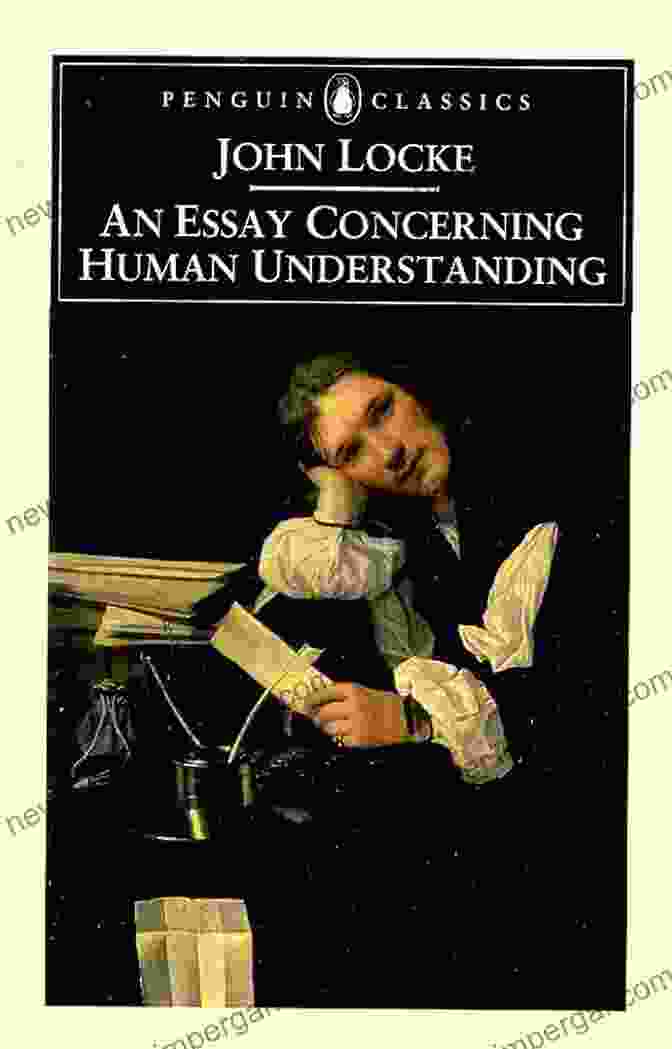
John Locke's "An Essay Concerning Human Understanding" stands as a towering monument of Western thought, a philosophical magnum opus that has profoundly shaped our understanding of the human mind and its relationship to knowledge. Published in 1690, this seminal work shattered long-held beliefs and inaugurated an era of unprecedented intellectual inquiry.
4.2 out of 5
| Language | : | English |
| File size | : | 1914 KB |
| Text-to-Speech | : | Enabled |
| Screen Reader | : | Supported |
| Enhanced typesetting | : | Enabled |
| Word Wise | : | Enabled |
| Print length | : | 590 pages |
| Lending | : | Enabled |
In this article, we will embark on an enthralling journey through Locke's philosophical masterpiece, unraveling its key concepts, exploring its enduring impact, and showcasing its relevance to our modern world. Join us as we venture into the labyrinth of knowledge and grapple with the fundamental questions that have captivated philosophers for centuries.
The Genesis of an Intellectual Revolution
John Locke, an English philosopher, physician, and political theorist, was born in 1632. His sharp intellect and insatiable curiosity propelled him into the realm of philosophy, where he sought to challenge prevailing dogmas and establish a new foundation for human understanding.
During the 17th century, intellectual thought was dominated by the rationalist tradition, which held that knowledge is derived solely from innate ideas. René Descartes, the most influential rationalist, famously declared, "Cogito, ergo sum" ("I think, therefore I am"). Rationalists believed that the mind contains certain fundamental truths, which can be discovered through reason and analysis.
Locke, however, vehemently challenged this notion. He argued that the human mind, at birth, is a "tabula rasa," a blank slate devoid of any inherent knowledge. All our ideas, he contended, are acquired through experience, which enters our minds through the senses.
This concept of empiricism, the belief that all knowledge originates from experience, was a revolutionary idea at the time. It overturned the long-held assumption that our minds are pre-programmed with innate knowledge and provided a new basis for understanding human thought.
Key Concepts of "An Essay Concerning Human Understanding"
Locke's "An Essay Concerning Human Understanding" is divided into four books, each exploring a different aspect of human cognition. Let's delve into the key concepts that underpin this philosophical masterpiece:
1.
The Origin of Ideas:
Locke argues that all knowledge originates from experience. He distinguishes between two types of experience: external, which comes through the senses, and internal, which includes our own thoughts, emotions, and desires. According to Locke, the mind is a passive recipient of these experiences, which it then transforms into ideas.
2.
Simple and Complex Ideas:
Locke further divides ideas into two categories: simple and complex. Simple ideas are the basic building blocks of thought, such as the idea of red or cold. Complex ideas are combinations of simple ideas, such as the idea of a house or a friendship.
3.
Language and Thought:
Locke also explores the relationship between language and thought. He argues that language is essential for communication and intellectual inquiry. However, he also warns against the dangers of misusing language, which can lead to confusion and error.
4.
Reason and Knowledge:
Locke distinguishes between two types of knowledge: intuitive knowledge, which is immediately apparent to the mind, and demonstrative knowledge, which is acquired through a series of logical deductions. He argues that knowledge is limited to the realm of experience and that there are limits to what human reason can achieve.
The Enduring Impact of Locke's Philosophy
"An Essay Concerning Human Understanding" has had a profound impact on Western thought and society. Here are some of its enduring legacies:
1.
The Foundation of Empiricism:
Locke's empiricist philosophy laid the groundwork for the development of modern science and the scientific method. The idea that knowledge is derived from experience led to a shift away from speculation and towards observation and experimentation.
2.
The Rise of Enlightenment Rationalism:
The Enlightenment, a period of intellectual and scientific revolution in the 18th century, was heavily influenced by Locke's empiricism. Locke's ideas provided a basis for the rejection of dogma and superstition and the embrace of reason and critical thinking.
3.
Political Philosophy and the Age of Revolution:
Locke's empiricist epistemology also influenced his political philosophy. He argued that all political authority is based on the consent of the governed, which became a foundational principle for modern democratic societies. His ideas inspired revolutions in America and France, shaping the course of modern history.
The Relevance of "An Essay Concerning Human Understanding" Today
Over three centuries after its publication, "An Essay Concerning Human Understanding" remains a vital and relevant work for understanding the human mind and our quest for knowledge. Here are a few ways in which Locke's ideas resonate with us today:
1.
Critical Thinking and Information Literacy:
In an age of information overload, Locke's emphasis on experience and critical thinking is more important than ever. We must learn to evaluate information critically, distinguish between fact and opinion, and avoid the pitfalls of misinformation and disinformation.
2.
The Limits of Artificial Intelligence:
Locke's theory of knowledge also has implications for our understanding of artificial intelligence. While AI can process vast amounts of data, it is still limited by its lack of experiential understanding. AI systems can learn from data, but they cannot truly think or feel like humans.
3.
The Nature of Reality and Knowledge:
Locke's work continues to provoke debate about the nature of reality and the limits of human knowledge. The question of whether our understanding of the world is mediated by our senses or by our cognitive structures remains a central topic of philosophical inquiry.
: A Timeless Legacy of Insight
John Locke's "An Essay Concerning Human Understanding" is a philosophical masterpiece that has forever altered the course of human thought. Its empiricist philosophy shattered the chains of dogmatic belief and inaugurated an era of unprecedented intellectual inquiry. Locke's ideas on the origin of ideas, the nature of knowledge, and the limitations of human reason continue to resonate with us today, providing a framework for understanding our minds, our world, and our place in it.
As we navigate the complexities of the modern world, "An Essay Concerning Human Understanding" serves as an enduring guide, reminding us of the importance of critical thinking, the value of experience, and the limits of human knowledge. By delving into the depths of Locke's philosophical masterpiece, we embark on a timeless journey of self-discovery and intellectual enlightenment.
4.2 out of 5
| Language | : | English |
| File size | : | 1914 KB |
| Text-to-Speech | : | Enabled |
| Screen Reader | : | Supported |
| Enhanced typesetting | : | Enabled |
| Word Wise | : | Enabled |
| Print length | : | 590 pages |
| Lending | : | Enabled |
Do you want to contribute by writing guest posts on this blog?
Please contact us and send us a resume of previous articles that you have written.
 Book
Book Novel
Novel Page
Page Chapter
Chapter Text
Text Story
Story Genre
Genre Reader
Reader Library
Library Paperback
Paperback E-book
E-book Magazine
Magazine Newspaper
Newspaper Paragraph
Paragraph Sentence
Sentence Bookmark
Bookmark Shelf
Shelf Glossary
Glossary Bibliography
Bibliography Foreword
Foreword Preface
Preface Synopsis
Synopsis Annotation
Annotation Footnote
Footnote Manuscript
Manuscript Scroll
Scroll Codex
Codex Tome
Tome Bestseller
Bestseller Classics
Classics Library card
Library card Narrative
Narrative Biography
Biography Autobiography
Autobiography Memoir
Memoir Reference
Reference Encyclopedia
Encyclopedia Joni Eareckson Tada
Joni Eareckson Tada Jolyon C Parish
Jolyon C Parish John Foxjohn
John Foxjohn John Wooley
John Wooley Joseph Migga Kizza
Joseph Migga Kizza Joseph Louis Lisoni
Joseph Louis Lisoni John W S Bradshaw
John W S Bradshaw Johnny Molloy
Johnny Molloy John L Plaster
John L Plaster John Patrick Shanley
John Patrick Shanley John F Freeman
John F Freeman John H Lorentz
John H Lorentz Jonathan Harnisch
Jonathan Harnisch John Rose
John Rose Joseph T Major
Joseph T Major Johnjoe Mcfadden
Johnjoe Mcfadden John Hargrove
John Hargrove John Stanaway
John Stanaway John Holl
John Holl John Dimes
John Dimes
Light bulbAdvertise smarter! Our strategic ad space ensures maximum exposure. Reserve your spot today!

 Chance FosterHistory of the Royal Norfolk Regiment and the Royal East Anglian Regiment: A...
Chance FosterHistory of the Royal Norfolk Regiment and the Royal East Anglian Regiment: A...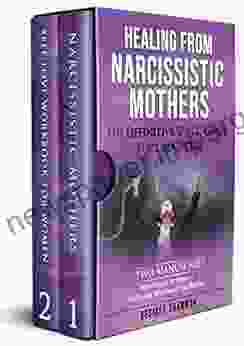
 Colin RichardsonEmpowering Women: Narcissistic Mothers Self Love Workbook for a Journey of...
Colin RichardsonEmpowering Women: Narcissistic Mothers Self Love Workbook for a Journey of... Gus HayesFollow ·8.4k
Gus HayesFollow ·8.4k Tony CarterFollow ·7.4k
Tony CarterFollow ·7.4k Sammy PowellFollow ·4.7k
Sammy PowellFollow ·4.7k Joseph HellerFollow ·17.9k
Joseph HellerFollow ·17.9k Andy HayesFollow ·7.6k
Andy HayesFollow ·7.6k Cole PowellFollow ·16.2k
Cole PowellFollow ·16.2k Martin CoxFollow ·14.7k
Martin CoxFollow ·14.7k Leon FosterFollow ·9k
Leon FosterFollow ·9k
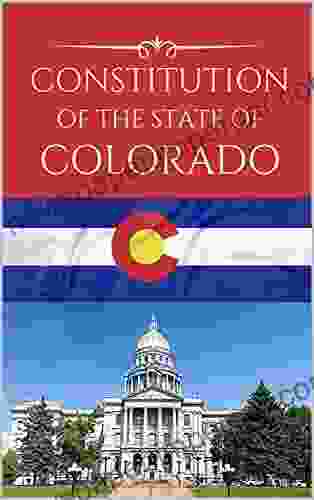
 Jake Powell
Jake PowellThe Constitution of the State of Colorado: A Legacy of...
Since its adoption in 1876, the...
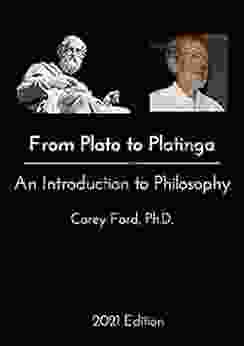
 Devin Ross
Devin RossFrom Plato to Plantinga: A Journey Through the History of...
Philosophy is the study of...
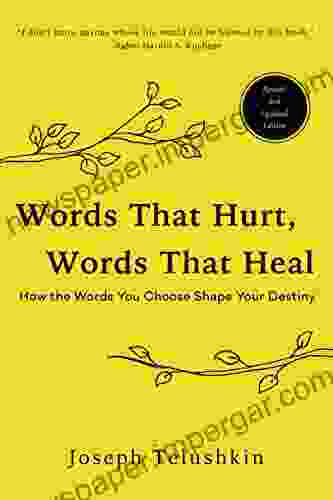
 Robin Powell
Robin PowellWords That Hurt, Words That Heal: The Power of Language...
Words are powerful. They can...

 T.S. Eliot
T.S. EliotTantalize Your Taste Buds with Over 90 Low-Carb Ethnic...
Indulge in a Culinary Adventure with "Over...
4.2 out of 5
| Language | : | English |
| File size | : | 1914 KB |
| Text-to-Speech | : | Enabled |
| Screen Reader | : | Supported |
| Enhanced typesetting | : | Enabled |
| Word Wise | : | Enabled |
| Print length | : | 590 pages |
| Lending | : | Enabled |


